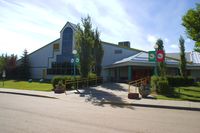It is a legitimate concern when you notice low water pressure in your home or office. Low water pressure can be caused by many things. Simple problems like the shut-off valve being closed or a faucet being blocked can cause low water pressure, however more serious issues like plumbing blockages or water leaks decrease water pressure, too. Use these tips to troubleshoot low water pressure issues.
1. Determine if all locations within your home or office have low water pressure.
Check various locations like the kitchen, the bathroom and an outdoor hydrant to identify a problem area or to determine that all locations have low water pressure.
2. Check the faucet if you only have low water pressure in a particular location, such as the kitchen sink. Remove the end of the faucet. Turn the water on. The faucet has no blockage if the water flow is not restored to normal.
Examine your aerator if the water pressure increases. Remove any debris and replace the aerator.
3. Inspect the water heater if your low water pressure only affects your hot water.
Verify the shut-off valve is not shut off. For safety, each water heater includes a shut-off valve to use in case of emergencies. If the valve becomes turned slightly, it can reduce your water pressure.
Contact your plumber to check your lines into your water heater. Blockages can occur within the lines, and plumbers have efficient ways of checking them.
4. Look at the Pressure Reducing Valve (PRV). Shaped like a bell, the PRV is usually located on the line where it enters the home or office. Adjust it to see if it affects your overall water pressure. Replacement may be necessary if the valve has failed or broken. (not all homes will have a PRV)
5. Check the shut-off valve at the water meter. This valve can influence water pressure, especially if it has been turned slightly.
6. Determine if you have a water leak within your building or in the area.
Call your neighbors to see if they are experiencing water pressure issues, too. If they are, there may be a leak in the lines. Call the water department to report the issue.
Look at your water lines to check for leaks. Check your water usage at your meter. If it is significantly more than usual, it is likely you have a leak. Call a plumber for repairs




